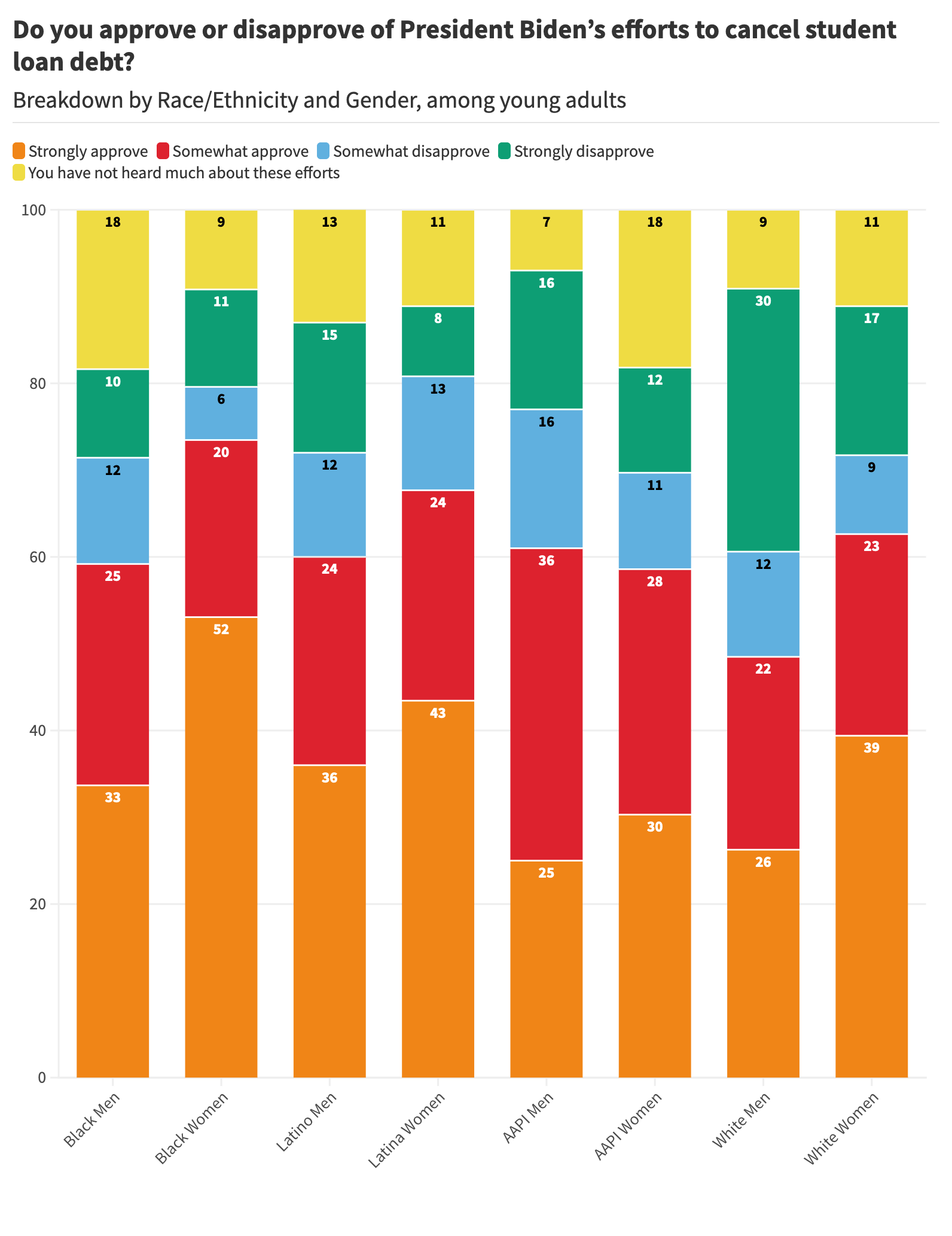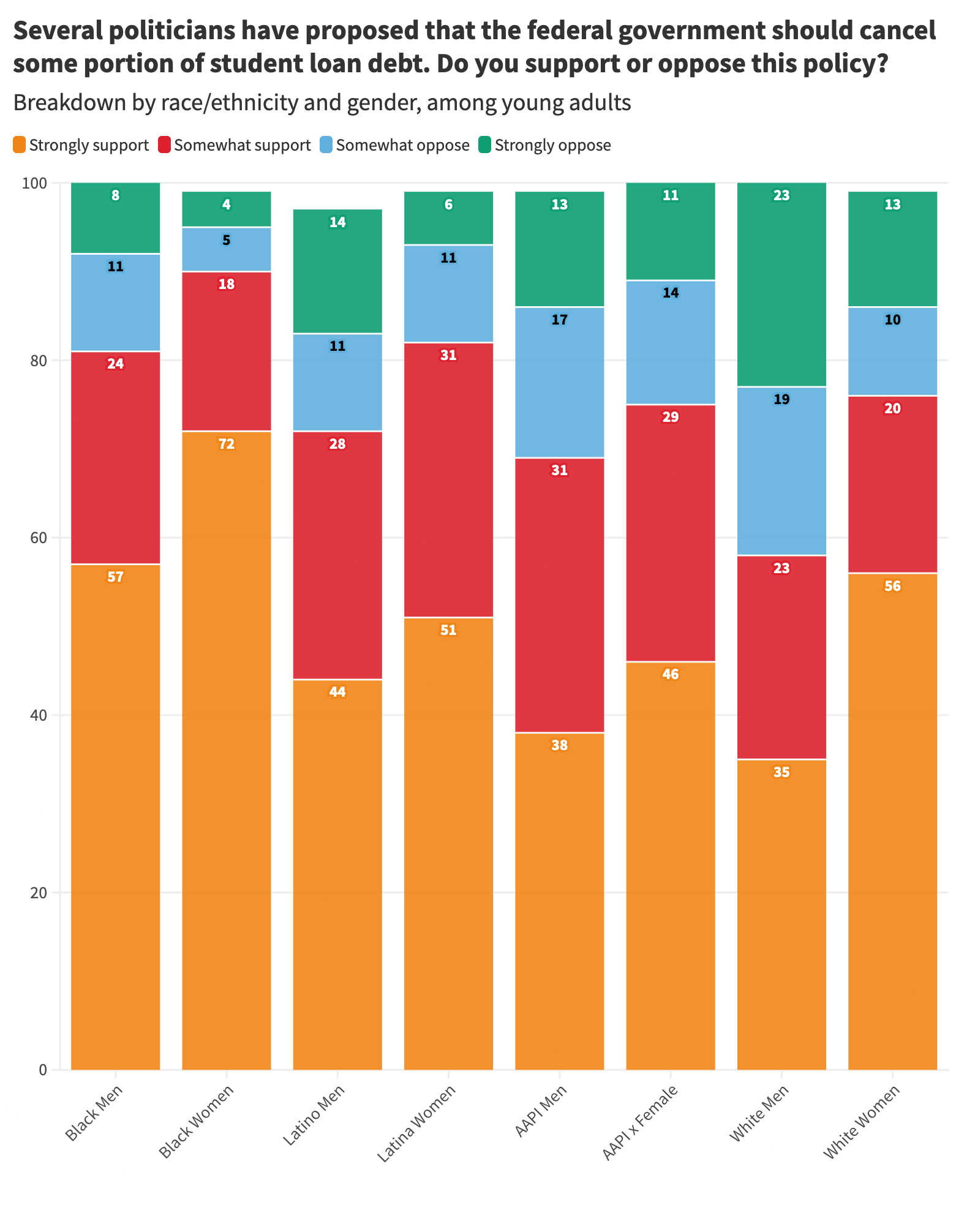By Jenn M. Jackson
April 24, 2024
In recent months, Black women’s educational credentials and professional qualifications have been a central topic in the news media following the public attacks on Dr. Claudine Gay, the first Black woman to be President of Harvard University, and the ongoing political debates about diversity, equity, and inclusion (DEI) programs at universities across the country. As a result of the treatment she faced, Dr. Gay now holds the record for the shortest tenure as President of the Ivy League university following her resignation in January. Her experience was not unique.
Black women in DEI positions all over the country have been released from their jobs or resigned abruptly, many for undisclosed reasons. Lauren Footman, Delaware County’s first DEI director and a lecturer at the University of Pennsylvania, was fired after she filed a complaint with the Equal Employment Opportunity Commission concerning racial discrimination at her job. . Tabia Lee is suing her previous employer, De Anza College in Cupertino, California after she was terminated from her role as a tenured faculty member and director of the Diversity, Equity, and Inclusion. In the lawsuit, Lee claims she was told that she was not the “right kind of Black person.” Recently, in response to Texas’s Senate Bill 17, an anti-DEI bill passed in January, University of Texas at Austin laid off nearly 60 employees in DEI-related positions, many of whom were Black, Brown, queer, trans, and immigrant women.
Across the country, and across industries like entertainment, education, and publishing, Black women have become victims to what some are referring to as an “Anti-DEI Crusade.” These attacks come just a few years after mass calls for greater representation in the workplace brought droves of Black women into prominent leadership positions following the global pandemic spikes and mass protests of 2020 following the police killing of George Floyd.
For many Black women, the costs of involvement with higher education are not only a professional risk but also a financial one. According to the Center for Economic Policy and Research, Black women are one of the most educated groups and carry more student loan debt than any other group. As college campuses become less accessible to Black, Brown, poor and working class, immigrant, and first generation students, with college tuition growth outpacing average wage growth, these disparities in financial risk have become even more critical for Black women seeking higher education For many Black women, obtaining four-year, graduate-level, and professional degrees has long been framed as a means to greater social and economic mobility. However, at this moment, some Black women have been disappointed by the ongoing discrimination and conditions they face once they’ve achieved these goals.
While wars about the legitimacy of DEI programs rage on, many Black women see efforts to reduce loan debt as beneficial to their own lives. According to November 2023 GenForward data, 72 percent of Black women polled either strongly or somewhat approved of President Biden’s efforts to cancel student loan debt. This group reported the highest support across all women (and men) as white women (62%), Asian American and Pacific Islander women (58%), and Latina/e women (67%) all reported lower support for this policy. Black men reported the second lowest level of support for Biden’s efforts at 57 percent. The lowest support came from white male respondents at 48 percent. These data indicate that Black women see a direct connection between their long-term earning potential and the student loan burdens that they carry.

The chasm of support between Black women and men may seem surprising but, when examining the data, it may be attributable to the student loan debt policy’s association with Biden. When Biden is removed from the conversation, Black men are the third highest group to strongly or somewhat support this policy at 81 percent. Black women and Latina/e women reported 92 percent and 82 percent, respectively. Here, the gap between these groups tightens drastically. So, while Black men seem tepid about their support for Biden’s policies, their interest in student loan debt cancellation is more in alignment with Black women once he is excluded. Unfortunately, this suggests that Black men may not take student loan debt forgiveness as seriously as Black women because they are less affected personally. This also suggests that the mention of Biden dampens support among Black men.

Overall, these data suggest that Black women are looking to political leadership to create more equity in their higher education journeys. While so many Black women are encouraged to obtain more degrees and take on more debt to get potentially higher paying jobs and professional status, they are frequently less supported financially in doing so and treated unfairly once they enter the workforce. This is a systemic problem. At a baseline, Black women, on average, are not paid fairly for their work. According to the US Census Bureau in 2021, Black women made 64 percent of what non-Hispanic white men were paid that year holding the type of work equally. This is a financial disparity that has endured for generations. Reducing, or even canceling student loan debt, can free up income for new home purchases, reduce other credit and loan debts, starting new businesses, and generally provide greater financial freedom.
For many Black women, these conditions at work and at school have become not only untenable but deeply unfair. The ongoing oversight of Black women’s labor is neither new nor rare, but it is concerning, nonetheless. As we continue to seek new options to close the wealth gap and ensure economic equality for all people, we will need to listen to those who are most affected by systemic racism and institutional discrimination. They are the experts on how to address and solve this problem.
Sadly, listening to Black women is precisely what so many people are not doing right now. And, Black women all over the country are suffering because of it.
The GenForward Survey is associated with the University of Chicago. The November 2023 survey responses were collected from November 8 to 20, 2023, among a nationally representative sample of 3,448 adults 18+ representing the 50 states and the District of Columbia. The overall margin of error is ±2.94 percentage points at the 95 percent confidence level.
Jenn M. Jackson (they/them) is a queer androgynous Black woman, an abolitionist, a lover of all Black people, and an Assistant Professor at Syracuse University in the Department of Political Science. Jackson’s research is in Black Politics with a focus on group threat, gender and sexuality, political behavior, and social movements. Jackson is a columnist at Teen Vogue, the author of peer-reviewed articles at Public Culture, Politics, Groups, and Identities, and the Journal of Women, Politics, and Policy, and the author of several forthcoming book chapters on the intersections of race, gender, class, and politics. Jackson received their doctoral degree in Political Science at the University of Chicago in 2019. Learn more about Jenn & the GenForward researchers here.

